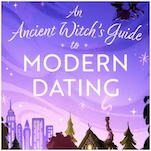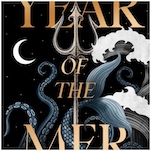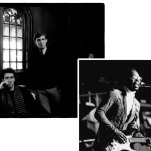Is This Bad Take from the New York Times Opinion Page or Breitbart?
Photo by Mario Tama/Getty
Anyone who writes on the internet has penned a poor column at some point in their lives. It’s unavoidable, and no writer should be defined by one piece. However, when that writer writes multiple sub-par posts, at a certain point, it reaches a critical mass where oafishness is the only logical explanation. The New York Times has always employed less than stellar opinion columnists. Tom Friedman just wrote an infomercial for Saudi Arabian fascism, but that naivete is closer to the norm given that he wrote in 2012 that it is “impossible” to find an international midwife to aid Syria in a column advocating for an international midwife to aid Syria’s “good” rebels (however that’s defined). No matter the era, you have always been able to cherry pick bad takes from the Times’ opinion page (I took my shots at Friedman early because his tone is so uniquely stuffy and grating that there’s nothing like it at Breitbart).
But with their hiring of Bret Stephens last summer, we seem to have entered a new era where bad takes are the explicit business model of the New York Times opinion page. Newspaper opinion pages are almost universally mundane, as they’re filled with articles that largely amount to non-millennials shaking their fist at the changing times (either for or against). This is not to say that the entire NYT opinion page is bad—regulars like Charles Blow or guests like Paste’s own Shane Ryan still write plenty of thoughtful articles worth reading—but a significant chunk of it is useless drivel that seemingly exists solely to rile up hate-clicks in a manner not too dissimilar from Steve Bannon’s mutation.
Don’t believe me? Here are 10 excerpts from articles published either on the Times opinion page or Breitbart. See if you can spot which one is which.
Question 1
But it’s precisely because Dylan [Farrow]’s account plays to our existing biases that we need to treat it with added skepticism. Most parents know that young children are imaginative and suggestible and innocently prone to making things up. The misuse of children’s memories by ambitious prosecutors against day-care center operators in the 1980s led to some of the worst miscarriages of justice in recent U.S. history. You don’t have to doubt Farrow’s honesty to doubt her version of events.
Nor have we learned anything else about [Woody] Allen in the intervening years that might add to suspicions of guilt. He married Soon-Yi and has been with her ever since. Nobody else has come forward in 25 years with a fresh accusation of assault against him.
If Allen is in fact a pedophile, he appears to have acted on his evil fantasies exactly once. Compare that to Larry Nassar’s 265 identified victims.
Answer: New York Times
This was the inspiration for this column—as Bret Stephens didn’t even do basic research before smearing a victim of pedophilia—essentially saying that Dylan Farrow’s testimony doesn’t matter because he Googled something last week that confirmed his own bias. Pod Save America’s Jon Lovett used rudimentary research skills that Stephens proved he doesn’t have in order to find publicly available documents which clearly paint Stephens’ column as Breitbart-level hackery. The correction to Stephens’ piece basically blasts his own thesis out of the water. Per some poor editor at the NYT:
An earlier version of this column misidentified a Yale-New Haven Hospital investigation as the only contemporaneous and independent investigation into Dylan Farrow’s allegations against Woody Allen. The New York State Department of Social Services and the Connecticut State Police also investigated the allegations.
Question 2
These days our mongrel culture is at risk of being erased by an increasingly strident left, which is careering us toward a wan existence in which we are all forced to remain in the ethnic and racial lanes assigned to us by accident of our birth. Hoop earrings are verboten as are certain kinds of button-down shirts. Yoga is dangerous. So are burritos and eyeliner.
Answer: New York Times
Sounds pretty Breitbart-y, doesn’t it? Nope, that’s just Bari Weiss—who wrote one of the seemingly infinite columns on the web which highlights extreme examples in order to paint the entire left as a bunch of intolerant banshees hellbent on destroying her poetic license to redefine what the word immigrant means.
It’s early, but I just want to congratulate @bariweiss and @nytopinion on what looks to be one of the largest and cleanest ratios in history. pic.twitter.com/btrNSuzUJI
— Jacob Blockchain (Give Me $ Now) (@Jakeweindling) February 12, 2018
Side note: Weiss’s initial bad tweet which initiated an internet dogpile last night could have been explained away as a misstatement, or the awkwardness of fitting complex thoughts into the shorthand of Twitter. It really wouldn’t have been a big deal without the “poetic license” a white woman awarded herself on behalf of a minority. The fact that she deleted the initial tweet—but not the one doubling down on it (as of this writing)—is proof that she doesn’t understand why a Twitter mob invaded her timeline.
Question 3
[Mike Pence] held an apologetic press conference at which he was at pains to insist that he meant no offense to anyone. And he demanded, and signed, a “fix” that removed the protections for private businesses for which the original bill had been passed. Conservative groups blasted Pence for his retreat, which also ended talk of his presidential prospects in 2016.
And what does Pence get from the LGBTQ community in response? More abuse, on an international stage.
This is just the latest example of a familiar pattern in which the left rejects any effort at compromise, repaying any effort at reconciliation with demands for more and more concessions.
Answer: Breitbart
If you had no clue how far the NYT opinion page had fallen, this would be an easy pick for Breitbart—but given that we opened with a Woody Allen defense and “mongrel” liberal culture, the range of possibilities sure has widened, hasn’t it?
Question 4
Recently I took a friend with only a high school degree to lunch. Insensitively, I led her into a gourmet sandwich shop. Suddenly I saw her face freeze up as she was confronted with sandwiches named “Padrino” and “Pomodoro” and ingredients like soppressata, capicollo and a striata baguette. I quickly asked her if she wanted to go somewhere else and she anxiously nodded yes and we ate Mexican.
Answer: New York Times
For those of us who waste way too much of our lives on Twitter (*raises hand*), this one should be familiar. David Brooks is no stranger to the downfall of the NYT opinion page—as he has been running point on that project for quite some time. The almost certainly made up story of a friend with a GED frozen by fear of meats not named bologna, salami or pepperoni gives it a whiff of Breitbart hackery preaching to “Real Americans,” but it is very clearly outed as a Times piece once they pivot to Mexican food.
Question 5
Dumbledore only became “gay” after the seven Harry Potter books had been written. His creator JK Rowling suddenly announced this amendment on a publicity tour in 2007, once the final book had been published.
But that still doesn’t make Dumbledore gay.
No more is Dumbledore gay than Jaws was vegetarian. Even if, on a 1970s book tour, Peter Benchley had suddenly announced that the shark had only eaten all those people by accident when it mistook them for strands of wholesome kelp, that still wouldn’t have made the shark vegetarian.
That’s because when you write a book, those are the rules.
Answer: Breitbart
Man oh man, is this one tough. It’s got everything you’d want in a hackneyed Times opinion column: pushing back on youth culture using one of its icons in a contrarian effort, a literary reference to a book written before that youth culture was born, an opaque reference to The Way Things Are and a column dripping with condescension (much like this one, admittedly). But alas, it is just Steve Bannon’s brainchild doing an advanced Old Man Yells at Cloud routine.
Question 6
“Some of my colleagues thought it was beyond offensive to have to go to a school named [for Andrew] Jackson,” Principal Jana Edward told the Salt Lake Tribune. The school told the newspaper it prides itself on having a diverse population: 85 percent of students at the school are students from minority backgrounds.
Some people see Andrew Jackson as a controversial figure because he owned more than 100 slaves and implemented the “Trail of Tears” policy that forced Native Americans to relocate from their homes. Others, however, see Jackson as a populist figure with an anti-establishment bent.
Answer: Breitbart
This story about a Utah high school renaming themselves after Mary Jackson—the African American NASA engineer depicted in Hidden Figures—is pure Breitbart-level troll content, but the incredibly tone-deaf both sidesism at the very end must give you pause if you have ever read a NYT opinion column.
Question 7
If you have a primitive zero-sum mentality then you assume growing affluence for the rich must somehow be causing the immobility of the poor, but, in reality, the two sets of problems are different, and it does no good to lump them together and call them “inequality.”
Answer: New York Times
David Breitbart Brooks strikes again! In 2014, he wrote that only primitive zero-sum brains assume that the rich getting richer has anything to do with the poor getting poorer. If only there was some way to tell….
*Googles for Literally One Minute*
— ???? (@onlygoodposts1) February 13, 2018
— ???? (@onlygoodposts1) February 12, 2018
Question 8
In an autobiographical best-seller, Tyson also conducted a searing self-examination, which was condensed into a one-man Broadway performance and HBO special. Whatever one thinks of Mike Tyson before or after his conviction, one has to concede that he has made a serious self-inventory and changed the way he sees himself and others. If [Bill] Kristol were serious about the politics of winning elections rather than merely pontificating about them, he would have known these facts and also recognized that Tyson is an icon to an important segment of the voting population — one that is more likely than not to offer sincere repenters a second chance.
Electorally speaking, Trump’s ability to win the endorsement of an African-American sports champion is no small achievement. Nor is it an isolated one. Trump has also been endorsed by Adrien Broner, a world boxing champion in four weight classes, who is also African-American.
Answer: Breitbart
This column taking conservative pundit/Iraq War cheerleader/not your #resistance hero, Bill Kristol, to task over his #NeverTrump stance sure has the vacuous, yet serious veneer of a Times opinion column. Because Mike Tyson was one of the few broadly famous African Americans not named Omarosa to declare their support for Trump, David Horowitz believed that Kristol should look at him in a different light. This column could very easily pass the sniff test at the NYT, save for its header:
Bill Kristol: Republican Spoiler, Renegade Jew
This article is proof that at their very worst, the only difference between the NYT opinion page and standard Breitbart copy is the editor picking the headline.
Question 9
That’s right. Their test, designed to provide empirical ballast to a feminist agenda, ended up completely torpedoing it. Worse, it suggested that employers actually discriminate in favor of women, choosing them in favor of men when they believe them to be competent enough.
“After the experiment was over, I was left scratching my head” concluded the report. “If the issue wasn’t interviewer bias, what could it be?”
The report also reveals that women are around seven times more likely to quit the platform after underperforming in an interview. According to a published graph featured in the report, men are more likely to continue, giving it more of a shot on the second interview as opposed to completely giving up like their female counterparts.
Answer: Breitbart
Milo Yiannopoulos is a famed conservative agitator known for defending pedophilia (another thing that Breitbart has in common with the NYT opinion page), and this is his infamous “There’s No Hiring Bias Against Women In Tech, They Just Suck At Interviews” column. I could have embedded a lot of different parts of this unhinged rant that would clearly out it as far too insane for the Times, but I included this passage as a reminder of how “according to a study” can make anyone sound intelligent—like what Bret Stephens tried to accomplish in his Woody Allen defense—highlighting one report which ran contrary to judgements delivered by police and other government agencies.
Question 10
There’s a lesson here. We live in a world in which data convey authority. But authority has a way of descending to certitude, and certitude begets hubris. From Robert McNamara to Lehman Brothers to Stronger Together, cautionary tales abound.
We ought to know this by now, but we don’t. Instead, we respond to the inherent uncertainties of data by adding more data without revisiting our assumptions, creating an impression of certainty that can be lulling, misleading and often dangerous. Ask Clinton.
With me so far? Good. Let’s turn to climate change.
Answer: New York Times
We’ll finish where we began, with Bret Stephens torpedoing the Times’ credibility. This was his first column for their opinion page, and it basically amounted to “Hillary Clinton and her team thought they were, if not 100 percent right, then very close” to winning, so climate change data should be treated with skepticism. I’m not joking. That quote is the first sentence of the piece, and he wound up emboldening climate change deniers by the time it was over.
Closing this (hopefully not bad!) column full-circle, I’ll leave you with Shane Ryan lambasting Stephens’s half-assed hack job which exemplifies so many of his thoughts that the New York Times willingly pays for.
I hate this so much. Has any writer ever telegraphed his approach so obviously? And not to be one of those dudes throwing around the names of logical fallacies willy-nilly, but has false equivalence ever run so amok in an persuasive essay?
Let me lay it out for you, Bret: Some campaign dweeb who devises a closed system for analyzing voter data that tells him not to campaign in Wisconsin is different from the accumulated science of decades that tells us climate change is real and man-made. No matter how you try to harness the energy of electoral populism, it won’t transport you to a reality where, “eh, the planet’s probably fine” is a reasonable extrapolation. Voting is different from climate. VOTING IS DIFFERENT FROM CLIMATE. THEY ARE TWO DIFFERENT THINGS.
Jacob Weindling is a staff writer for Paste politics. Follow him on Twitter at @Jakeweindling.







































